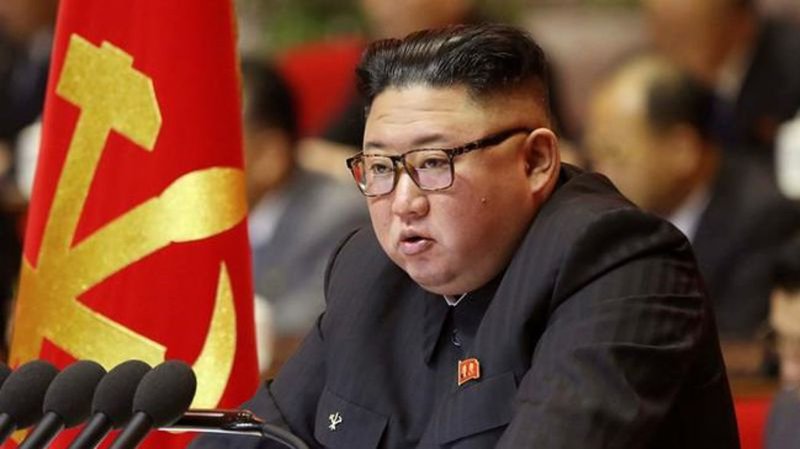
N. Korea threatens to build more nukes, cites US hostility
SEOUL, Korea, Republic Of — North Korean leader Kim Jong Un threatened to expand his nuclear arsenal and develop more sophisticated weapons systems, saying the fate of relations with the United States depends on whether it abandons its hostile policy, state media reported Saturday.
Kim’s comments made Friday during a key meeting of the ruling party were seen as applying pressure on the incoming administration of President-elect Joe Biden, who has called Kim a “thug” and has criticized his summits with President Donald Trump.
The Korean Central News Agency quoted Kim as saying the “key to establishing new relations between (North Korea) and the United States is whether the United States withdraws its hostile policy.”
Kim said he won’t use his nuclear arsenal unless “hostile forces” intend to use their nuclear weapons against North Korea first. But he stressed North Korea must further strengthen its military and nuclear capability as the danger of a U.S. invasion increases.


